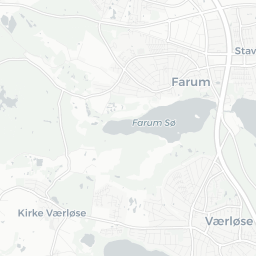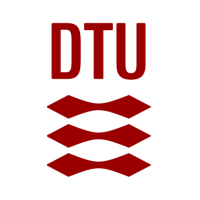Postdoc in Fungal enzymology and Food science - DTU Bioengineering
Danmarks Tekniske Universitet (DTU)
We are seeking a postdoctoral researcher for the IFD-funded UPCYFUN project, which aims to identify and develop new fungal protein production hosts that thrive in growth media composed of industrial-side streams.
Are you passionate about sustainability and innovation? Do you want to contribute to reshaping the food supply chain and creating a new and sustainable production system? If so, we invite you to join the UPCYFUN project at DTU as a Postdoctoral Researcher. UPCYFUN is a collaboration between DTU, Aalborg University, TDI and the private companies ProteinFrontiers, Pexinno, HNH-consult, Lyras, and Vestjyllands Andel, financed by the Innovation Foundation.
In this position, your work will focus on functional screening of DTU’s large fungal strain collection (IBT) to identify novel production hosts using a combination of robotics-assisted experiments and data mining in our 30 years of legacy data regarding the safety, metabolomics, and physiology of the strains. The UPCYFUN project is a unique opportunity for you to make a lasting societal impact, while also strengthening your research profile within fungal-based biotechnology, cell factory engineering, robotics, and data science – a highly sought-after profile in both academia and industry.
You will join the Section for Synthetic Biology at DTU Bioengineering, which offers a unique open research environment that balances foundational science, multidisciplinary research, and innovation in close collaboration with leading national and international industrial and academic partners.
The UPCYFUN project and your responsibilities
Your primary focus will be conducting research to create foundational knowledge and develop the technologies needed to identify, characterize and mature novel fungal production chassis for fermentation-based production. This project specifically aims to identify a series of filamentous fungi for protein production of food ingredients and proteins/enzymes in general. The sought-after strains must grow and sustain high productivity on a series of new production media, also developed in the UPCYFUN, that utilize various currently unutilized biological waste streams from industry. The strains must further be safe (mycotoxin-free) and display process robustness to allow for the use of the wide range of feedstocks available throughout the seasons.
You will join a dynamic and interdisciplinary team of scientists with expertise in mycology, laboratory automation (robotics), molecular biology, analytical chemistry, data science, and food science.
The REFINES project is funded by the Innovation Foundation’s Grand Solutions program and is a collaboration between DTU, Aalborg University, Danish Technological Institute, and a series of private companies, including ProteinFrontiers, Pexinno, HNH-consult, Lyras, and Vestjyllands Andel. The unique collaboration provides access to exclusive biological materials and detailed process information, allowing the consortium to develop a deep understanding of the production process and to pioneer the creation of new and sustainable solutions.
You will be responsible for conducting and driving the research project forward at DTU, with the aim of identifying new host strains and understanding strain robustness (relevant traits and their molecular genetic basis). Initially, you will collaborate with the mycology team (IBT collection) to select 5000 fungal isolates (based on legacy data) for which you will test their general performance (growth) in a series of new media. Next, you will work closely with our automation specialists to develop efficient, robotic-assisted screening and characterization assays (based on existing robotics capabilities in the Section), enabling you to perform high-throughput screening and characterization of the selected sub-library of fungal isolates. To identify the best new host chassis for protein production, you will next focus on qualifying the initial hits, with data sets on fermentation properties (manufacturability and robustness), metabolomics (safety), exoproteome (protease activity), and genomics (safety), using robotics-assisted setups. The best-performing strains will next, in collaboration with AAU, be genetically engineered to test the strains’ heterologous protein expression potential and to optimize the chassis for protein production. The generated data will enable you to address research questions such as: Which traits are key for robustness, and can they be identified early in a screening setup? What is the molecular genetic foundation of these traits? How can we reliably predict a strain’s robustness and compatibility with growth medium composition?
The project’s goal is to discover and mature a series of new industrially relevant fungal production chassis that can be commercialized by the industrial partner(s). The project will furthermore create a series of new robotic-assisted screening and characterization pipelines, and unique data sets that can form the foundation for future projects (led by you?) focused on utilizing the unique DTU fungal strain collection for other biosolutions.
Your primary tasks will be:
- Design and conduct laboratory-based research, as described above, to develop the tools and knowledge needed to identify and characterize new robust fungal host strains.
- Active collaboration and knowledge exchange within the UPCYFUN consortium.
- Communicate your findings and the developed technologies through scientific publications, popular science articles, reports, and presentations at conferences and workshops.
- Supervise BSc, MSc, and PhD students and contribute to regular teaching with lectures relevant to your project and research activities.
- Support the development of the IBT (DTU) Fungi strain collection and the Section for Synthetic Biology.
Qualifications
As a formal qualification for this position, you must hold a PhD degree (or equivalent) in biotechnology, mycology, biochemistry, or biology.
Additionally, you must:
- Have relevant experience in laboratory-based experimental biology, focusing on biochemistry (enzymology), biotechnology, or general molecular biology.
- Have a systematic and analytical mindset.
- Have a good command of English, both spoken and written.
- Be an effective team player, especially in an interdisciplinary and multi-partner setting.
- Be eager to learn new techniques and understand new scientific disciplines.
It’s a clear plus if you can code in Python, have experience with liquid-handling robots (Tecan Fluent/Evo, Hamilton MicroLab Star, FlowbotONE, or Opentrons), have experience with integrating large datasets, and have worked with culturing filamentous fungi. However, it is not a strict requirement that you master all of these —we can teach you.
We understand that the job description includes a very broad spectrum of experimental techniques and areas of expertise. Rest assured, you will receive adequate support and mentoring at every project stage. We are fully committed to investing in your professional development.
We offer
DTU is a leading technical university globally recognized for the excellence of its research, education, innovation and scientific advice. We offer a rewarding and challenging job in an international environment. We strive for academic excellence in an environment characterized by collegial respect and academic freedom tempered by responsibility.
The Section for Synthetic Biology provides a uniquely open research environment defined by collaboration, free exchange of ideas, and shared knowledge. Rather than viewing one another as competitors, we form a vibrant community of innovators. Within this setting, you will join the Biosynthetic Pathway Engineering research group, led by Rasmus J.N. Frandsen, which focuses on developing fungal biosolutions, both by engineering small-molecule cell factories and identifying whole-cell-based systems. The group has, in recent years, pioneered the use of laboratory automation with mycology, through the DTU Arena for Life Science Automation (DALSA), and modernized the DTU strain collection (physical collection, data, and robotics workflows) to allow for robotics-assisted mycology research – enabling rapid screening and development of BioAg solutions in the Smarter AgroBiological Screening (SABS) project. The interdisciplinary team includes biotechnologists, molecular biologists, biochemists, fermentation specialists, analytical chemists, automation specialists, and data scientists.
This position offers opportunities to learn new skills in laboratory automation, genetic engineering, mycology, and data science under the mentorship of world-leading experts. Additionally, the project includes industrial partners, allowing you a chance to work in their application-focused laboratories and experience life in the private sector.
Salary and terms of employment
The appointment will be based on the collective agreement with the Danish Confederation of Professional Associations. The allowance will be agreed upon with the relevant union.
The period of employment is 4 years, full time.
The primary workplace will be the DTU campus in Kgs. Lyngby, Denmark, with the possibility of occasional visits to collaborators’ laboratories in Jutland (Denmark) and possibly the Netherlands.
The starting date is as soon as possible, ideally July 1, 2025.
You can read more about career paths at DTU here.
Further information
If you have questions regarding the position or the project, further information may be obtained from Associate Professor Rasmus J.N. Frandsen, head of the Section for Synthetic Biology (rasf@dtu.dk), at the Department of Biotechnology and Biomedicine (Bioengineering).
You can read more about DTU Bioengineering at https://www.bioengineering.dtu.dk/..
If you are applying from abroad, you may find useful information on working in Denmark and at DTU at DTU – Moving to Denmark.
Application procedure
Your complete online application must be submitted no later than 15 May 2025 (23:59 Danish time).
Applications must be submitted as one PDF file containing all materials to be given consideration. To apply, please open the link "Apply now", fill out the online application form, and attach all your materials in English in one PDF file. The file must include:
- A cover letter (Application) that motivates your application (maximal 1 page) for the postdoc position and describes how your competencies and experiences are relevant to the successful completion of the UPCYFUN project.
- A CV that includes your educational background, work experience, publication summary, and teaching and supervision experience.
- A list of publications, including a short description of your contribution to each publication.
- Your two best (relevant) published papers.
- Academic Diplomas (MSc/PhD – in English)
Review and interviews may commence before the application deadline. Applications received after the deadline will not be considered.
All interested candidates irrespective of age, gender, disability, race, religion or ethnic background are encouraged to apply.
The Department of Biotechnology and Biomedicine (DTU Bioengineering) is an international leader in the areas of biotechnology and biomedicine. Our engineering approach to all aspects of biotechnology and biomedicine positions us as a valuable player with unique competences in a growing bio-based economy and with health systems transforming towards personalized medicine. We have a clear focus on the needs in the life science- and biotech industries and point towards innovation, new businesses, and scientific services for the benefit of society. The department has extensive collaborations with national and international research units and industry. DTU Bioengineering has approx. 400 employees, of which 2/3 are scientific staff. The department is located at DTU Lyngby Campus.
Technology for people
DTU develops technology for people. With our international elite research and study programmes, we are helping to create a better world and to solve the global challenges formulated in the UN’s 17 Sustainable Development Goals. Hans Christian Ørsted founded DTU in 1829 with a clear mission to develop and create value using science and engineering to benefit society. That mission lives on today. DTU has 13,500 students and 6,000 employees. We work in an international atmosphere and have an inclusive, evolving, and informal working environment. DTU has campuses in all parts of Denmark and in Greenland, and we collaborate with the best universities around the world.
Adresse:
Opslaget er indhentet automatisk fra virksomhedens jobsider og vises derfor kun som uddrag. Log ind for at se det fulde opslag eller gå videre til opslaget her:















